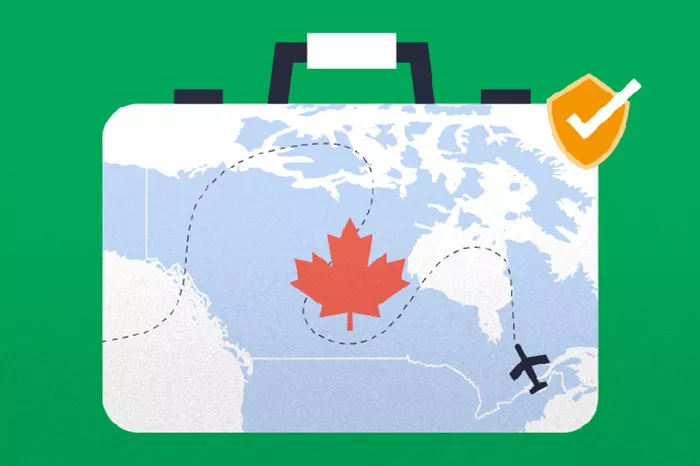Travel insurance is a crucial aspect of trip planning, providing financial protection against various unexpected events. If you’re considering a visit to the Channel Islands, it’s essential to evaluate whether travel insurance is necessary for your trip. This article will delve into the importance of travel insurance for the Channel Islands, the types of coverage available, and how to choose the right policy to suit your needs.
Why Travel Insurance Is Essential for the Channel Islands
Travel insurance is designed to protect you from a range of risks that can occur during your trip. The Channel Islands, comprising Jersey, Guernsey, Sark, and Alderney, offer beautiful landscapes and unique experiences, but they also come with specific risks. Here’s why having travel insurance is crucial for your Channel Islands adventure:
1. Medical Emergencies
Medical emergencies can happen anytime and anywhere, including the Channel Islands. Although the islands have excellent healthcare facilities, they might not be covered by your standard health insurance. Travel insurance ensures that you’re covered for:
Hospitalization Costs: In case of illness or injury, travel insurance will cover hospitalization expenses.
Emergency Medical Evacuation: If you need to be transported to a different location for treatment, insurance can cover the costs.
Repatriation: If necessary, travel insurance will cover the costs of returning you to your home country for medical treatment.
2. Trip Cancellations and Interruptions
Plans can change due to various unforeseen circumstances. Travel insurance helps you recover costs if you need to cancel or interrupt your trip. Coverage includes:
Non-Refundable Expenses: Reimbursement for flights, accommodation, and pre-booked activities that cannot be refunded.
Trip Interruption: If your trip is cut short due to an emergency, insurance will cover additional costs like rescheduled flights and accommodation.
Unexpected Events: Coverage in case of events such as natural disasters, political unrest, or personal emergencies that force you to cancel your trip.
3. Lost or Stolen Belongings
Losing your luggage or having personal items stolen can be distressing. Travel insurance provides coverage for:
Lost Luggage: Compensation for lost or delayed luggage and the costs of replacing essential items.
Theft: Coverage for stolen belongings, including electronics, clothing, and personal items.
Damage: Compensation for items damaged during transit or while in your possession.
4. Flight Delays and Missed Connections
Flight issues can disrupt your travel plans, causing additional expenses. Travel insurance covers:
Accommodation: Costs for extra nights in a hotel if a flight delay causes an extended stay.
Meals: Reimbursement for meals incurred due to delays or cancellations.
Additional Travel Costs: Coverage for alternate travel arrangements if you miss connecting flights.
5. Personal Liability
Accidents involving other people or property can occur. Travel insurance offers:
Legal Costs: Coverage for legal expenses if you are sued for causing injury or property damage.
Compensation: Financial protection if you are found liable for damages or injuries to third parties.
Types of Travel Insurance for the Channel Islands
When selecting travel insurance, understanding the different types of coverage is essential. Here are the main options:
1. Basic Travel Insurance
Basic travel insurance typically covers essential aspects of your trip. It’s a cost-effective option that includes:
Medical Expenses: Coverage for emergency medical costs.
Trip Cancellation: Reimbursement for non-refundable trip costs if you cancel due to covered reasons.
Lost or Delayed Luggage: Compensation for lost or delayed baggage.
2. Comprehensive Travel Insurance
Comprehensive travel insurance provides more extensive coverage and is suitable for those seeking broader protection. It includes:
Higher Medical Limits: Increased coverage for medical expenses.
Trip Interruption: Coverage for trip interruptions and additional costs incurred.
Rental Car Coverage: Insurance for rental vehicles in case of damage or theft.
Adventure Activities: Coverage for activities like hiking or diving, which may be excluded from basic policies.
3. Annual Multi-Trip Insurance
For frequent travelers, annual multi-trip insurance offers coverage for multiple trips within a year. Benefits include:
Cost-Effective: Generally cheaper than purchasing separate policies for each trip.
Convenience: No need to arrange insurance for each individual trip.
Comprehensive Coverage: Often includes benefits similar to comprehensive travel insurance.
4. Specialized Travel Insurance
Specialized travel insurance is tailored to specific needs. Options include:
Adventure Travel Insurance: For travelers engaging in high-risk activities such as skiing or scuba diving.
Cruise Insurance: Coverage for cruise-specific risks like missed ports or trip cancellations due to cruise line issues.
Pre-Existing Medical Conditions: Policies that cover medical conditions existing before the trip.
How to Choose the Right Travel Insurance
Selecting the appropriate travel insurance involves evaluating your needs and comparing policies. Consider the following factors:
1. Coverage Limits
Ensure that the policy’s coverage limits are sufficient for your needs. Look for:
Medical Coverage: Adequate limits for medical emergencies.
Trip Cancellation: Sufficient coverage for non-refundable trip expenses.
Personal Belongings: Coverage for lost or stolen items.
2. Exclusions and Restrictions
Understand what is excluded from the policy. Common exclusions include:
High-Risk Activities: Some policies do not cover adventurous activities unless specifically included.
Pre-Existing Conditions: Certain policies may exclude coverage for pre-existing medical conditions.
Travel Advisories: Coverage may be limited if travel advisories are issued by authorities.
See Also: Do I Need Domestic Travel Insurance?
3. Deductibles and Co-payments
Check the deductibles and co-payments associated with the policy:
Deductibles: The amount you need to pay out-of-pocket before insurance coverage kicks in.
Co-payments: Your share of the costs for medical treatments or other covered expenses.
4. Provider Reputation
Choose a reputable insurance provider with:
Positive Reviews: Look for feedback from other travelers about the provider’s service and claims process.
Reliable Customer Service: Ensure that the provider offers responsive and helpful support.
Efficient Claims Processing: Check how quickly and efficiently the provider processes claims.
5. Policy Customization
Consider whether the policy can be customized to meet your specific needs:
Add-Ons: Options to include additional coverage for specific activities or concerns.
Flexible Plans: Policies that allow adjustments based on changes in travel plans.
How to Purchase Travel Insurance
Once you’ve selected a policy, you can purchase travel insurance through various methods:
1. Online Insurance Providers
Many providers offer online platforms for easy comparison and purchase:
Convenience: Compare different policies and get quotes quickly.
Instant Purchase: Immediate coverage once you complete the purchase.
2. Travel Agents
Travel agents often offer travel insurance as part of their services:
Expert Advice: Agents can help you choose the right policy based on your travel plans.
Bundled Services: Insurance can be included with other travel arrangements.
3. Insurance Brokers
Insurance brokers provide personalized advice and assistance:
Customized Recommendations: Brokers can recommend policies tailored to your needs.
Claims Support: They can assist with the claims process if needed.
Conclusion
In summary, travel insurance is a vital consideration for anyone planning a trip to the Channel Islands. It provides protection against medical emergencies, trip cancellations, lost belongings, and other unforeseen events. By understanding the types of coverage available and choosing the right policy, you can ensure a safe and enjoyable trip to this beautiful destination. Whether you select basic coverage or a more comprehensive plan, having travel insurance will give you peace of mind and allow you to fully appreciate your Channel Islands adventure.
FAQs
1. Is travel insurance mandatory for visiting the Channel Islands?
Travel insurance is not legally required to visit the Channel Islands, but it is highly recommended. While the islands are relatively safe, having insurance provides financial protection against unexpected events that could disrupt your trip. Medical expenses, trip cancellations, lost luggage, and other unforeseen issues can be costly. Travel insurance ensures that you are covered for these potential risks, giving you peace of mind. Without insurance, you would be responsible for covering these costs out-of-pocket. For a worry-free trip, investing in travel insurance is a prudent choice.
2. What types of travel insurance should I consider for the Channel Islands?
When visiting the Channel Islands, you should consider various types of travel insurance based on your needs. Basic travel insurance covers essential aspects such as medical emergencies, trip cancellations, and lost luggage. Comprehensive insurance offers broader coverage, including higher medical limits and additional benefits like rental car coverage. For frequent travelers, annual multi-trip insurance can be more economical and convenient. Specialized insurance may be necessary if you plan to engage in high-risk activities or need coverage for pre-existing conditions. Evaluating your travel plans and potential risks will help determine the best type of insurance for you.
3. How do I choose the right travel insurance policy for my trip?
Choosing the right travel insurance policy involves comparing different options and considering your specific needs. Start by reviewing coverage limits to ensure they are adequate for medical expenses, trip cancellations, and personal belongings. Pay attention to exclusions and restrictions, such as coverage for pre-existing conditions or high-risk activities. Consider the deductibles and co-payments associated with each policy, as well as the reputation of the insurance provider. Look for providers with positive reviews and reliable customer service. Customizing your policy with add-ons or optional coverage can also help tailor the insurance to your travel plans.
4. What should I do if I need to make a claim on my travel insurance?
If you need to make a claim on your travel insurance, follow these steps to ensure a smooth process. First, contact your insurance provider as soon as possible to report the incident and initiate the claim. Gather all necessary documentation, such as medical reports, receipts, and police reports if applicable. Complete any required claim forms provided by the insurer, ensuring that all information is accurate and comprehensive. Submit your claim along with the supporting documents and keep copies for your records. Stay in touch with your insurance provider throughout the process and respond promptly to any requests for additional information. Follow up to ensure that your claim is processed and settled in a timely manner.
5. Does travel insurance cover pre-existing medical conditions?
Travel insurance coverage for pre-existing medical conditions varies by policy and provider. Some policies offer coverage for pre-existing conditions if certain criteria are met, such as purchasing insurance within a specific time frame after booking your trip. Others may provide limited coverage or exclude pre-existing conditions entirely. It is essential to review the policy’s terms and conditions regarding pre-existing conditions and consult with the insurance provider if you have any questions. If you have a pre-existing condition, consider looking for policies specifically designed to cover such conditions. Always disclose your medical history accurately when applying for travel insurance to ensure you receive appropriate coverage.






















